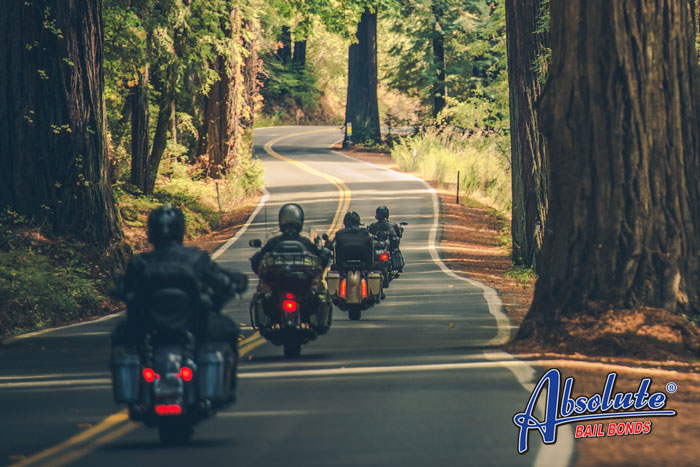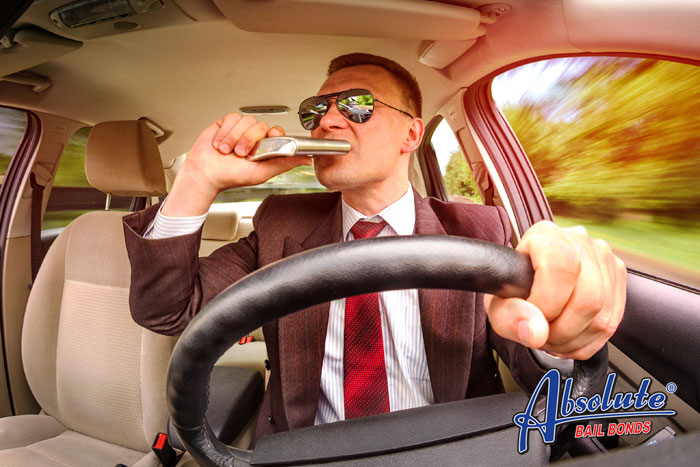
Traveling with a Motorcycle Group? Follow These Safety Tips
There are multiple perks to traveling with a motorcycle group as opposed to riding on your own. The top two are that having people along who are as passionate about motorcycles as you makes the entire trip more enjoyable, and that traveling with a group is safer than riding solo.
If you’re planning a group motorcycle adventure this summer, here are a few things you should keep in mind.
Set Up a Pre-Ride Meeting
Don’t underestimate the importance of a pre-ride meeting. A week or two before the planned trip, get together, either in person or virtually, and go over the details of the trip. Make sure everyone understands the itinerary, the route, and all the other things that are expected to crop up along the way. Make sure safety and how to handle emergencies is one of the topics discussed.
In addition to being a great way to help keep the trip organized, the pre-ride meeting is also a wonderful opportunity for any riders who are new to the group to introduce themselves and to start cultivating friendships.
Go Over the Hand Signals
Hand signals are a huge part of riding with a group of fellow motorcycle enthusiasts. Even if everyone has a radio, you must remember that electronic communication often fails so you should always plan on using hand signals in addition to vocal cues. Right before everyone embarks on the journey, take a few minutes to go over the type of hand signal everyone in the group is to use and what that signal looks like.
Hand signals everyone in the group should be familiar with include:
- Follow me
- Hazard in the roadway
- Proceed with Caution
- Pull off
- Single file
- Slow down
- Speed up
Plan Breaks
Even if you are the type of rider who can go for hours without a real break, don’t assume everyone else in your group is the same. You should plan on taking frequent breaks. Ideally, you should plan your breaks during your pre-ride meeting. By having planned break locations along the route, you create a situation for everyone who might get left behind at some point to catch back up.
Use the break as an opportunity to check in with everyone. In addition to making sure that they are comfortable, not fatigued, and still enthusiastic, these break-time check ins are a great opportunity to handle minor repairs, address concerns that have cropped up, and even tweak the itinerary.
Make Sure You Have All the Essentials
Before leaving on the trip, make sure everyone has plenty of:
- Food
- Water
- Safety equipment
- First aid supplies
- Fully charged phones
- A copy of the itinerary
The more organized you are while planning the group motorcycle trip, the more fun everyone will have during the adventure.

Jaywalking is Legal Again
Did you know that you can legally jaywalk in California?
That’s right; you’re free to cross the road whenever you feel like it, even if you’re not in a crosswalk. You can even do so right in front of a police officer, and they won’t be able to stop you or issue a ticket. How cool is that?
You should know that this newfound freedom to jaywalk to your heart’s content does come with a catch. Jaywalking in California is legal, provided you’re able to do so in a manner that’s considered safe.
Jaywalking in California became legal in January of 2023 when California’s CVC 21955 went into effect. When you read through the law, you’ll discover that jaywalking is perfectly legal in California, provided that you’re not in a collision while you’re jaywalking. The idea is that you are expected to pay attention and use good judgment before you walk across the road. If there is a reasonable chance that you’re jaywalking could result in a collision, either with you, another car, or even a pole/sidewalk/mailbox/etc. You will be the one who gets into trouble.
If you’re caught jaywalking in a spot where your action could trigger a collision, you will be issued a ticket. The base cost of the ticket is $196, but there will also be state fees, local fees, and assessments added to the ticket, meaning that you’ll owe significantly more than $200.
Have you enjoyed your new jaywalking privileges yet?

Different Ways Social Media can get you Into Legal Trouble
Social media is supposed to be a fun way to stay connected to your family and friends, and for the most part, that’s exactly what it is. However, as some people have found out, there are a few different ways that social media can cause you to get into some legal trouble.
Getting a Too Personal with a Follower
Many people make friend via social media platforms and these friendships become long lasting and healthy. The problem is that it’s easy to cross the line on social media, until what you thought was an honest attempt to get to know someone results in stalking and harassment charges.
Online social media is a massive problem. This occurs when you start to become too invested in another person’s life and start forcing yourself into their DMs, become aggressive with the comments you leave on the other person’s posts can make them uncomfortable to the point that they will file charges.
Posting About Illegal Activity
A surprising number of people inadvertently attract police attention by posting about crimes they’ve been involved in. Some simply mention that they were at the scene of a crime. Some people will post images of stolen products. There have even been cases where people were charged and convicted of crimes because they posted detailed information about the crime and their involvement on their social media case.
If you have been involved with a crime or even in activity that seems suspicious, it’s in your best interest to keep the information off of your social media platforms. You don’t want to make it easy for the police to secure an arrest warrant.
The best way to stay out of legal trouble when you’re updating your social media accounts is making sure that you take a few minutes and consider each post. Is it something that will attract the attention of the police, could violate a copyright law, or make it appear that you have a questionable personality.
Posting Images That Aren’t Yours Without the Owner’s Permission
This is one that isn’t discussed as much as it should be. While you may not seem the harm in posting a picture you either found while surfing the ‘net or a sample from a photoshoot you recently had with a photographer, doing so is actually copyright infringement. If the photo’s actual owner is upset enough, they could file charges. This has happened a few times to large companies who posted photos they didn’t actually own. In most cases, the photo’s owner approached the company and asked for compensation.

What Happens if You Fail to Appear for Jury Duty?
Our justice system depends heavily on jury duty. If you are contacted about jury duty, you’re expected to attend and uphold your civic responsibilities.
First, it is important to understand that even though you have been contacted about jury duty and are expected to serve, there are some exceptions. The court will excuse you for valid health concerns as well as a few other reasons. That doesn’t mean that because you’re in ill health, you don’t have to respond to the summons. You will have to contact the court and discuss how to go about proving your concerns and validating them before you’re excused.
While illness is the most common reason for a person to be excused from jury duty, it’s not the only reason. Other valid reasons include the following:
- You’re a full-time student
- Occupational domain
- You’re connected to the case
- You have a strong, unshakeable opinion about one of the issues surrounding the case
- You have a great deal of advanced knowledge of the case
- You’re elderly (once you’ve passed your 70th birthday, you’re no longer required to serve on a California jury.)
If you aren’t able to be excused from your jury duty summons, you are expected to show up at the courthouse at the appointed time and date. The first time you fail to appear, you’ll receive a postcard from the court giving you a second chance. If you ignore that second postcard, you’ll be charged with contempt of court.
Getting charged with contempt of court for missing jury duty is not a laughing matter. This is a criminal charge. You will have to appear before a judge who will decide how you’re failure to honor your jury duty obligations will be handled. They could order you to spend a few days in jail, do community service, or even fine you up to $1,500.
If, for some reason, you’re unable to honor a jury duty summons in California, you are allowed to postpone your jury duty. This isn’t an indefinite postponement. You’re only allowed to ask for two jury duty postponements during a 12-month period.
When all is said and done, it’s in your best interest to handle the jury summons as soon as you receive it.

Teen Marijuana Use in California
Recreational marijuana is legal in California. However, that doesn’t mean that teens are allowed to partake in marijuana.
At this point, it’s legal for anyone who is over the age of 21, to grow, use, and carry marijuana. That age limit is important. If a person is 21 and enjoying some marijuana, they’re fine. The same isn’t true if their 19-year-old friend is doing the same thing.
The one exception to marijuana use in teenagers is if that medical marijuana can be prescribed to anyone who is at least 18 years old. That means that if an 18-, 19-, or 20-year-old has a prescription from a legit doctor, they can legally use marijuana. If a teen is prescribed medical marijuana, they must adhere to the rules laid out in the prescription. The slightest deviation could result in them facing serious legal repercussions.
Teens who are caught illegally in the possession of marijuana will face the same legal consequences they’d face if they were caught with alcohol. As long as the teen is merely in the possession of the marijuana but not using it, they will be charged with an infraction. The consequences of this particular marijuana infraction include a fine, mandatory drug education, and community service.
Teens who are caught operating a car after they have been illegally using marijuana will face the same consequences that they would had they been illegally drinking. In addition to fines and drug counseling, they will face license suspension. The more times they are caught driving while under the influence of marijuana, the more severe the legal consequences become.
At the end of the day, it’s important to make sure teenagers understand that it’s really in their best interest to wait until they are 21 before they experiment with marijuana. While they still have to be careful and make sure they don’t take so much that their ability to drive is impaired, by waiting until they’re legally able to do so, they don’t have to worry about getting into trouble for simply having marijuana in their pockets or tucked into a purse.

Tips for a Peaceful Holiday Family Gathering
This is the season when many of us are getting together with both our immediate and extended family to celebrate the holidays. While this is supposed to be a fun time that is full of joy and shared memories, all of us are painfully aware that whenever a family gathers, there’s always a chance that an argument will break out.
While you might not be able to completely prevent family discourse over the holidays, there are some things you can do that will help you maintain the peace during gatherings.
Know Your Limits
Before getting together with your family for the holidays, take a few moments to access your mental and emotional health. Are you in a good state of mind or do you feel like it wouldn’t take much to push you over the edge? Take another moment to determine how much time you can spend with your family before you find your emotions starting to unravel. Commit yourself to only spending that amount of time at the gathering before you make your excuses and leave. Don’t be afraid to leave early if your family becomes too much. It’s far easier to apologize for leaving early than it is to apologize for getting into a massive argument with your siblings.
Don’t Bring Up Old Problems
Treat this family gathering as a blank slate. Old arguments, complaints, and other issues should be pushed aside and allowed to rest. If you have a problem with how a relative has treated you in the past, try to avoid that particular relative at this particular gathering. Once the holidays are over, you can always call them and try to resolve the issue.
Evaluate Your Attitude
You may not be able to do much about your cranky uncle or bickering parents, but you can do something about your attitude. Instead of approaching the family gathering with a chip on your shoulder, convince yourself to be tolerant and cheerful. This is one of those fake it until you make it situations, when you’re cheerful, even when you’re forcing yourself to be, you’ll notice others respond positively to you. Before you know it, your good attitude will have shifted the gathering’s entire atmosphere and everyone will be having a good time.

When Does California Permanently Revoke a Driver’s License for DUI?
It’s no secret that if you’re caught driving while under the influence of an illegal amount of drugs or alcohol in California, you’ll not only be arrested and fined but you’ll also be convicted of a misdemeanor and have your driver’s license suspended. In most cases, the hassle of losing their driver’s license and finding alternative means of travel is the worst part of having a DUI conviction. Even for a few months, not being able to drive convinces most drivers to be mindful of how much they imbibe before sliding behind the wheel.
While most people learn their lesson after a single DUI, there are always exceptions. Unfortunately, for one reason or another, some drivers make the same mistake a second time. At this point, many panic about the long-term impact the second conviction will have on their driving privileges and start worrying about just how many DUIs they can have on their record before they permanently lose their California driving privileges.
Anyone who has passed their 21st birthday and is pulled over for suspicion of DUI and has a blood alcohol content (BAC) that is 008% or more will have their driving privileges revoked. The first time this happens, your driver’s license will be suspended for four months. Each time after that initial charge during a ten-year period, the suspension will last a full year.
The situation goes from bad to worse if you refuse to take a BAC or breath test when you’re pulled over by a patrol officer. In this situation, your driver’s license suspension will last for an entire year following your first DUI experience. If this is the second time you’ve been arrested for a DUI offense and refused the test, you’ll be suspended for two full years. The third and subsequent time this happens, your driver’s license will be suspended for a full three years.
Suppose you’re charged with a DUI while you’re currently on probation for a DUI offense. In that case, your driver’s license will be suspended for an additional year in addition to the traditional suspension period. You will also face the serious legal consequences of driving on a suspended license and probably some other traffic violations as well.
The best way to ensure you don’t lose your driving privileges is to be smart and always have a designated driver or ride-share plan when you go out for a night of fun and drinking.

How to Report a Missing Person in California
There is nothing funny about having a friend or family member fail to be where you expect them to be. The problem becomes even worse when you are unable to contact them via a cell phone call.
Many people who are in this situation mistakenly believe that their loved one must be missing for a full 24 hours before they should contact the police. The truth is that you can contact the authorities and set about filing a missing person report as soon as you suspect that something has gone wrong. If the police tell you that you must wait, they’re wrong. You’re legally allowed to file the missing report right away.
Not only are you legally allowed to file the missing person report right away, but doing so is a good idea. The sooner you report your loved one as missing, the sooner the police can be on the outlook for them. It can even be the thing that prompts the police to do a wellness check which could reveal that your loved one isn’t missing, but simply sitting at home ignoring your calls.
If you’re reporting a minor as missing, the police will start looking for them right away. If you’re reporting someone who isn’t a minor or considered an at-risk person as missing and remains at large for more than 72 hours, the police contact the FBI’s National Crime Information Center (NCIC) and have your loved one officially listed as an endangered adult. This is a crucial step as it gets your loved one’s information into a national database, making it easier for different law enforcement groups to report a sighting or to take an interest in the case.
Don’t assume that just because you’ve reported a loved one as missing that the police will bring your loved one directly to you once they’ve been found. If your loved one is over 21 years old and doesn’t have a history of mental health problems and hasn’t committed a crime, there is little the police can legally do once they’ve been located.
While the police can’t force your loved one to return and they can’t provide you details about where your loved one is currently located, it’s highly likely that they will let you know that you’re loved one is safe and appears to be of sound mind and spirit.



